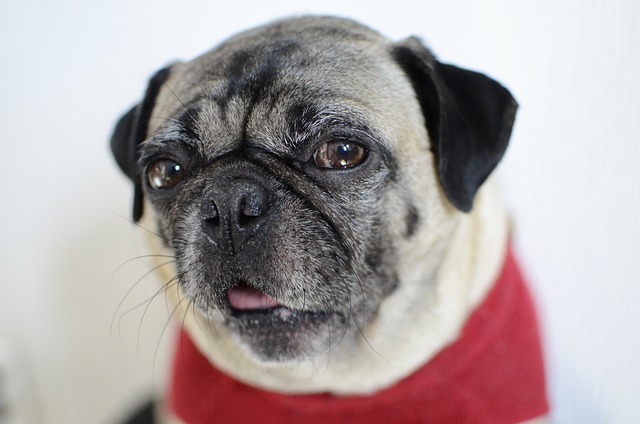
How to treat eye worms in dogs?
Spotting eye worms in dogs often starts with small, noticeable signs—squinting, redness, or your pup rubbing their eye more than usual.
Picture this: You’re in your Boston apartment, your 4-month-old Lab mix whines pitifully, ignores his breakfast, and gnaws frantically on your sofa leg. Your first thought? "Is teething making my pup sick?" You’re not alone! While teething is natural, it can leave puppies feeling downright crummy. Let’s unpack what’s normal, what’s not, and how to help without missing red flags.
Biologically, teething causes significant discomfort. As those 28 needle-sharp baby teeth push through inflamed gums (around 3-6 months), puppies experience localized pain, swelling, and itchiness. This explains classic puppy teething discomfort: drooling like a leaky faucet, frantic chewing, mild appetite loss, or occasional whimpering. Some pups even show low-energy moments between chewing marathons – think of them nursing a toothache! However, true illness like vomiting, diarrhea, high fever (over 103°F/39.4°C), or refusing water warrants an immediate vet call. Teething shouldn’t cause these; they could signal parvovirus (common in unvaccinated pups) or an infected tooth.
Soothing strategies blend science and practicality. Frozen relief toys are your MVP: soak a knotted washcloth in low-sodium broth and freeze it, or use vet-approved rubber toys (like Chilly Penguin). The cold numbs gums while chewing satisfies instinct. For apartment dwellers, rotate 3-4 toys to prevent boredom-induced destruction – a bored teether might redecorate your drywall! Redirect chewing gently using positive reinforcement: when you catch them mouthing your shoe, say "Oops!" cheerfully, swap it for a frozen carrot, and reward with praise. Never punish; yelling increases stress (and destructive chewing!). During walks in busy spots like NYC’s Riverside Park, keep a teething ring handy to curb leash-nipping – always carry biodegradable bags too, since teething pups might have irregular potty breaks. Scooping isn’t just polite; it’s law in places like San Francisco ($500 fines!).

Now, the big-picture responsibilities. Teething overlaps with critical puppy vaccination schedules. Rabies shots are legally required (age varies by state), and core vaccines (distemper/parvo) protect against deadly illnesses masked as "teething blues." Keep vet appointments – dismissing lethargy as "just teething" risks missing infections. Culturally, force-free training is non-negotiable. Rubbing bitter spray on furniture? Fine. Yanking their mouth? Absolutely not. This violates welfare norms in the EU/US and fuels anxiety (leading to more chewing). Instead, use positive teething relief tactics: reward calm behavior with kibble, teach "leave it" using high-value treats, and puppy-proof rigorously. In community spaces, manage overstimulation: a sore-mouthed pup might snap at off-leash dogs. Keep greetings brief, respect "no petting" cues, and avoid dog parks until teething eases. Remember, leash laws apply everywhere – even if Fido seems miserable, letting him roam free risks accidents or fines.
Yes, teething can make puppies feel off-color. But armed with smart relief tools, vet vigilance, and respect for local laws (like those poop-scoop ordinances in Chicago parks), you’ll navigate this phase smoothly. Prioritize comfort, stay alert for true illness, and remember: this temporary chaos builds a lifetime bond.

Spotting eye worms in dogs often starts with small, noticeable signs—squinting, redness, or your pup rubbing their eye more than usual.

You’re cleaning up your pup’s poop and notice something strange—tiny white specks or even small worms. Panic sets in, but knowing the signs of parasites can help you act fast.

You’ve probably stood in the dog park, watching other pups strut around with glossy fur that catches the sun, while your own dog’s coat looks flat and lackluster.

If you’ve ever stared at your pup’s lackluster fur and wondered if there’s a simple fix, you’re not alone. Many U.S. dog owners swear by adding eggs to their pets’ meals for a shinier coat

If you've found a probiotic that seems to be working wonders for your dog's digestion, it's only natural to wonder, "Can I keep this good thing going daily?"

Spotting tiny, wiggly worms in your dog’s eyes is scary, but acting fast matters—especially since some parasites can spread to humans or worsen eye damage.